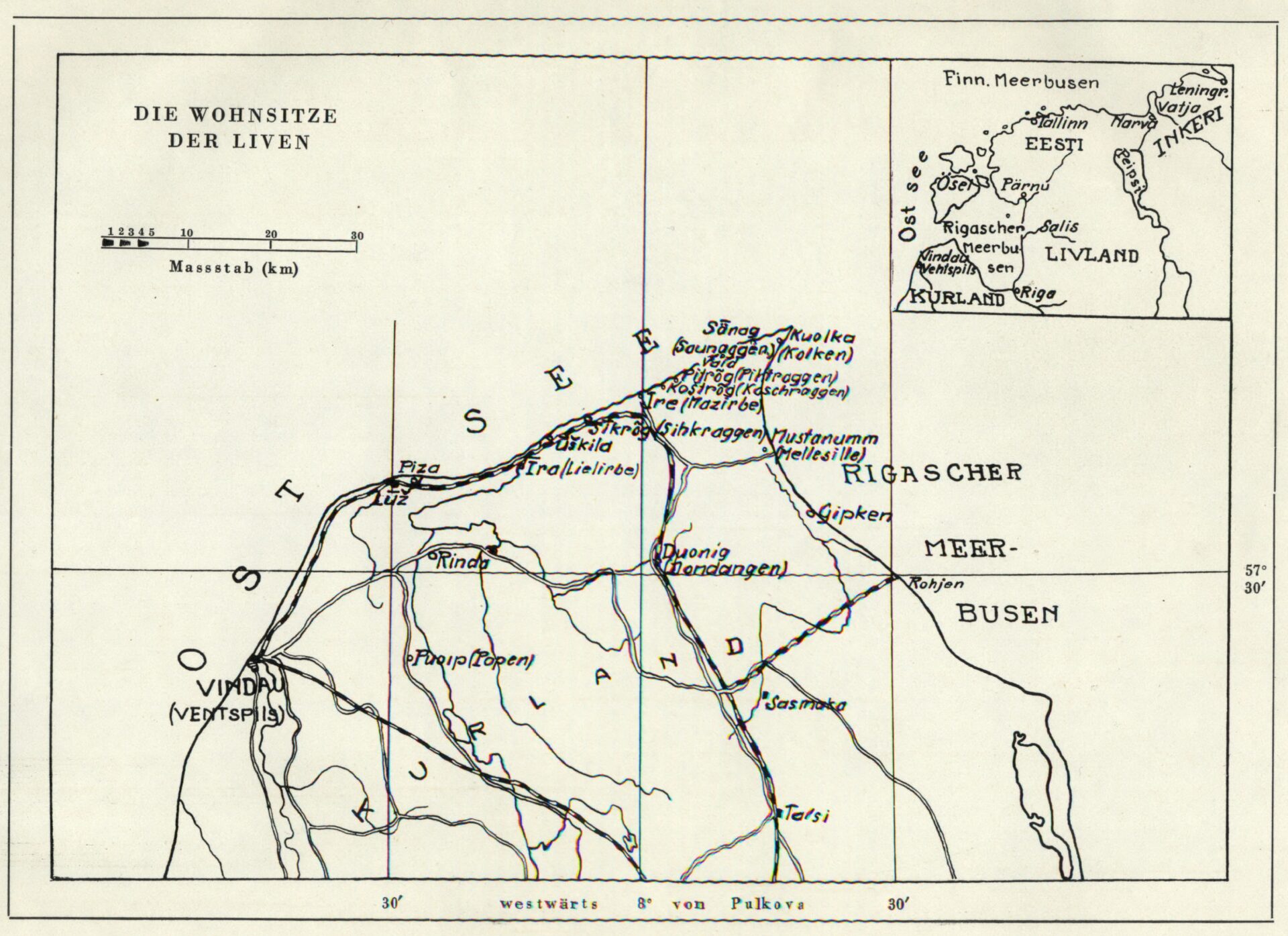
Livonian
7.2. Gramatik / Grammar
The grammar section of this lesson gives an overview of the jussive (page 1) and the quotative (page 2).
Jussive
The jussive is typically used when a command, prohibition, or request comes from someone other than the speaker and is directed at someone other than the listener. Usually, this construction consists of the particle la’z and the jussive form of the verb.
E.g., La’z võtāg sīe ibīz ja pangõ rattõd je’ddõ. ’Have (him) take the horse and put it in front of the cart.’
Possible endings include -g, -õg, -gõ, -kkõ, -kõ. Both of the last two are used only with one word: läkkõ ‘ may (s/he) go, so (s/he) goes’ and vȯlkõ ‘may (s/he) be, so (s/he) is’, respectively.
| Person | vȱl|da ’to be’ | tī’e|dõ ’to do’ | pall|õ ’to ask’ | lu’gg|õ ’to read’ | mõtl|õ ’to think’ |
| ma, sa, ta | vȯl|kõ | tīe|gõ | pǭla|g | lu’gg|õg | mõtl|õg |
| mēg, tēg, ne | vȯl|kõ|d | tīe|gõ|d | pǭla|g|õd | lu’gg|õg|õd | mõtl|õg|õd |
Jussive constructions are also used as purpose clauses, e.g., Ne’i ta āndab sīe botīļ la’z jūogõ. ’He gives the bottle so, in order to drink.’
To form the negative, add the negative verb a’lgõ or a’lgõd:
| ma, sa, ta | a’lgõ | pǭla|g |
| mēg, tēg, ne | a’lgõd | pǭla|g|õd |
E.g., Nai kītõn, algõ Mikīļ kārtag. ’The woman (had) said that Mikīļ should not be afraid.’


